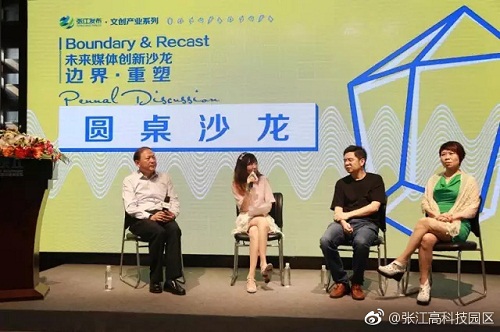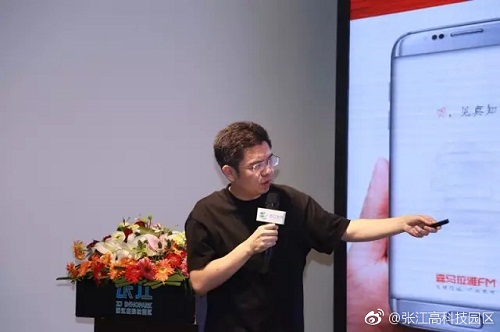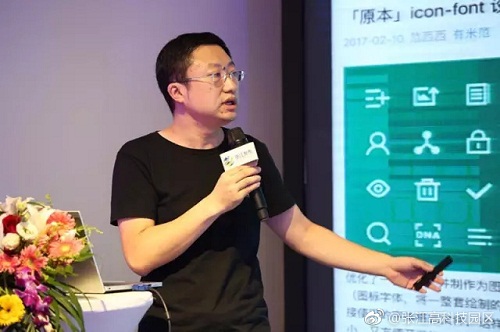Zhangjiang fosters new generation of content platforms

Leaders of creative and cultural companies located in Shanghai's Zhangjiang High Tech Park attend a meeting on Sept 18 to discuss the changes digital technologies are bringing to the industry. [Photo provided to chinadaily.com.cn]
New digital technologies are changing the game for content providers in China, according to attendees at a conference for cultural and creative industry companies in Shanghai's Zhangjiang High Tech Park on Sept 18.
Being located near in Zhangjiang—Shanghai's leading tech hub—is helping many of these companies stay ahead of the game in China's fast-moving content market.
Ximalaya, one of China's most popular audio sharing platforms, is one of those companies.
Founded over ten years ago, the platform revolutionized China's audio book market by not only providing a large number of works on its platform, but also allowing its users to create and share their own audio content.
The number of its active users on Ximalaya has surpassed 300 million, according to official statistics.
"We always believe that people need good stuff and are willing to pay for high-quality content," said Yu Jianjun, CEO and founder of Ximalaya.
In 2006, How to Talk, an eloquence-training program created by a group of popular Chinese debaters, generated revenue of 5 million yuan ($759,336) within 24 hours after being posted on Ximalaya, a stunning result.
Now, Ximalaya is working hard to maintain its edge. It is currently negotiating with tech giant Alibaba to make Ximalaya compatible with and available on Alibaba's YunOS Carware system, an operating system for smart vehicles.
Ximalaya is also working with LKKER, a creative platform for social products, to build an audio lab, trying to discover more possibilities of using audio in smart hardware.
Another Zhangjiang-based start-up, digital publishing company Jingling Tianxia, aims to use internet technology to disrupt the publishing industry. Its core concept is "One-key Publishing", making the entire publishing process fully automatic.
"It used to take eight to ten months to publish a book, but now it only takes two weeks using our platform," according to Qin Yunchuan, CEO of Jingling Tianxia.
"Knowledge Engine" is another technology of the company, which can help users find answers from fragmented, unstructured, and unrelated content quickly.

Yu Jianjun, CEO and founder of Ximalaya, one of China's most popular audio sharing platforms, speaks at a meeting in Zhangjiang High Tech Park, Shanghai, on Sept 18. [Photo provided to chinadaily.com.cn]

A company leader speaks at the meeting in Zhangjiang High Tech Park, Shanghai, on Sept 18. [Photo provided to chinadaily.com.cn]
 Contact Us
Contact Us

 Pudong lights up city with spectacular shows and cultural marvels
Pudong lights up city with spectacular shows and cultural marvels Brilliant light show to illuminate Huangpu River
Brilliant light show to illuminate Huangpu River Maple leaves paint splendid scenery in Pudong
Maple leaves paint splendid scenery in Pudong Appreciate alluring lotus blossoms in Pudong's Century Park
Appreciate alluring lotus blossoms in Pudong's Century Park


